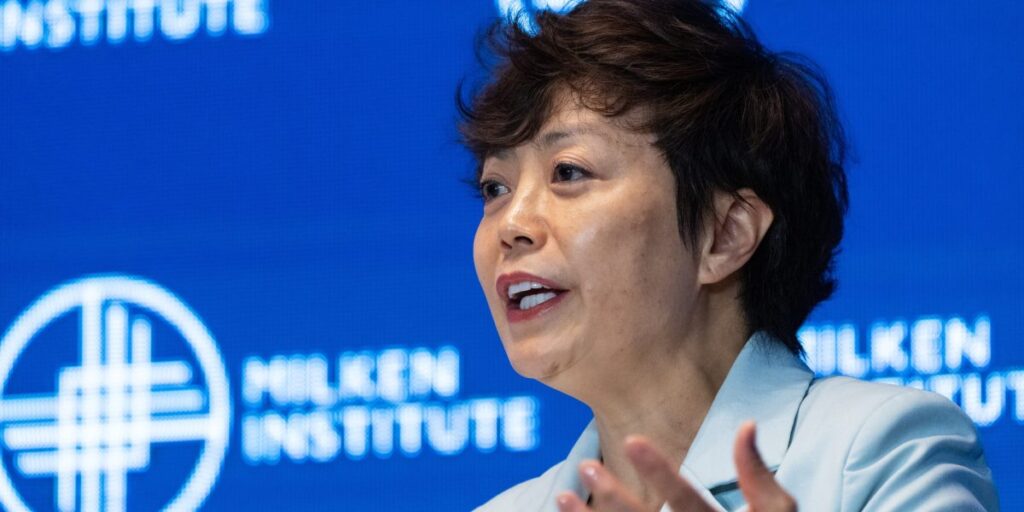
Chinese electric car giant BYD, backed by Warren Buffett’s Berkshire Hathaway, has global ambitions – expanding its operations in countries including Japan, Thailand and Mexico to sell its ultra-affordable cars around the world Electric car.But one market is conspicuously absent: the United States
BYD Americas CEO Stella Li said on Monday that the U.S. electric vehicle market is in “a very chaotic phase” as consumer adoption slows. “Electric vehicle penetration in the United States has actually declined,” she explained.
Speaking at the Milken Institute Global Conference, hosted by of wealth Diane Brady, Li reiterate China’s EV giant Following similar remarks in February, the company had “no plans to sell in the United States.”
Washington is trying to exclude China from the electric vehicle supply chain, with recent legislation denying tax credits to vehicles using Chinese parts such as batteries. On Monday, Li said geopolitics had a “significant impact” on BYD. “The United States is becoming a very protective market,” she said.
In March, President Joe Biden warned that Chinese cars could pose a national security risk because on-board software could collect data about the surrounding environment and transmit it back to Beijing.
Meanwhile, former President Trump threatened to impose tariffs of up to 100% on Chinese car imports if he is elected in November. The Trump administration previously raised import tariffs on Chinese cars to 27.5%.
On Monday, Lee expressed hope that “everything will return to normal” after the US election in November as people become “more determined and think about what the solutions are for the future”.
“unfair”
It’s not just Chinese automakers that are causing concern.
Last year, lawmakers criticized Ford’s plan to establish a joint venture in Michigan with Chinese battery giant CATL, saying it could lead to the flow of U.S. government funds to a Chinese company.
Congress is also considering legislation that would prevent Chinese biotech companies from working with federally funded health care providers.
Officials are also reportedly concerned about the use of Chinese cranes at U.S. ports, fearing such machinery could transmit data back to China. In February, the Biden administration pledged to spend $20 billion on port infrastructure, including domestic crane production.
On Monday, Li complained that it was “unfair” that Chinese companies were automatically seen as working hand in hand with the Chinese government.
The BYD executive pointed to the current controversy over TikTok, owned by Chinese technology company ByteDance. In April, the Biden administration signed a law ordering ByteDance to sell TikTok within nine months under the threat of a ban. TikTok sued the United States this week to block a ban, sparking a First Amendment battle.
Lee questioned why TikTok requested such censorship. “Even President Biden uses TikTok, why do they need to ban it? [it]?
BYD’s global expansion
BYD sells both pure electric vehicles and plug-in hybrid vehicles and is by far the largest seller of “new energy vehicles” in China. The company is currently actively targeting overseas markets for expansion. BYD is building manufacturing plants in Hungary, Thailand, Indonesia and Brazil.
Cheap Chinese electric cars produced by BYD and others are now sparking a backlash. In October last year, the EU launched a countervailing investigation into electric vehicles made in China, including BYD. The investigation could lead to tariffs on Chinese car imports.
BYD argued that its low price was due to “management efficiency” and technology investments.
On Monday, Lee suggested that the United States should embrace China’s “leading” electric vehicle supply chain. “They will bring the best technology to this country,” she continued.
U.S. officials have learned that they cannot completely exclude China from the electric vehicle supply chain. Last week, the U.S. agreed to allow automakers to use Chinese graphite, a key battery material, and still qualify for tax credits.

